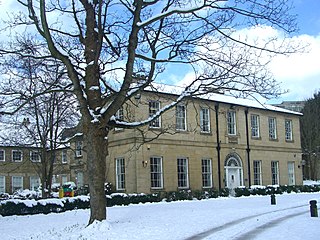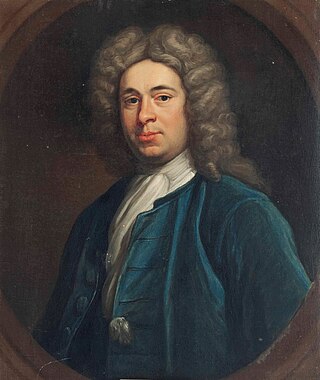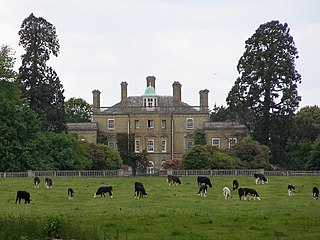Related Research Articles

Richard Edgcumbe, 1st Baron Edgcumbe, of Mount Edgcumbe in Cornwall, was an English Whig politician who sat in the English and British House of Commons from 1701 until 1742 when he was raised to the peerage as Baron Edgcumbe. He is memorialised by Edgecombe County, North Carolina.

Sir George Bowes was an English coal proprietor and Whig politician who sat in the House of Commons for 33 years from 1727 to 1760.

Lord James Cavendish FRS of Staveley Hall, Derbyshire was a British Whig politician who sat in the English House of Commons and the British House of Commons. He was a son of the 1st Duke of Devonshire and a member of the Cavendish family.

Andrew Wilkinson (1697–1784), of Boroughbridge, Yorkshire, was a British estate manager and Whig politician who sat in the House of Commons for 35 years between 1735 and 1772.
William Lambton (1640–1724) of New Lambton in County Durham was an English politician who sat in the English and British House of Commons between 1685 and 1713.

John White, of Wallingwells, Nottinghamshire, was an English politician who sat in the House of Commons from 1733 to 1768..

Sir John Evelyn, 2nd Baronet was a British courtier and Whig politician who sat in the House of Commons for 40 years from 1727 to 1767.
Sir John Crosse, 2nd Baronet, of Millbank, Westminster, and Rainham, Essex, was a British Whig politician who sat in the House of Commons between 1727 and 1754.
John Jeffreys of The Priory, Brecon, and Sheen, Surrey, was a Welsh politician who sat in the House of Commons from 1734 to 1766. He lost a fortune gambling but was awarded lucrative public positions under successive Administrations.
Sir John Eden, 2nd Baronet (1677–1728) was a British politician who sat in the House of Commons from 1713 to 1727.

Sir James Worsley, 5th Baronet (1672–1756), of Pylewell Park, Hampshire, was a British landowner and politician who sat in the English and British House of Commons between 1696 and 1741. He tended to support whichever administration was in power.
Richard Herbert (1704–1754) was a British politician who sat in the House of Commons between 1727 and 1754. He was badly injured in a duel.
Henry Finch was a British academic and politician who sat in the House of Commons from 1724 to 1761.
Ralph Jenison of Elswick Hall near Newcastle, Northumberland and Walworth Castle, county Durham. was a British politician who sat in the House of Commons between 1724 and 1758
John Hedworth (1683–1747), of Chester Deanery, Durham, was a British colliery owner and politician who sat in the House of Commons for 34 years from 1713 to 1747.
Robert Pigott (1665–1746), of Chetwynd, Shropshire and Chesterton, Huntingdonshire, was an English landowner and Whig politician who sat in the House of Commons between 1713 and 1741.
William Powlett, of Chilbolton and Easton, Hampshire, was a British landowner and Whig politician who sat in the House of Commons between 1729 and 1757.

Walter Lloyd, of Peterwell, Cardiganshire, was a British lawyer and Whig politician who sat in the House of Commons from 1734 to 1742.
Nathaniel Brassey of Roxford, Hertingfordbury, Hertfordshire and Lombard St., London was a British banker and politician who sat in the House of Commons from 1734 to 1761.
Pierce A'Court Ashe, of Ivy Church and Heytesbury, Wiltshire, was a British Whig politician who sat in the House of Commons from 1734 to 1768.
References
- 1 2 Foster, Joseph (1888–1892). . Alumni Oxonienses: the Members of the University of Oxford, 1715–1886 . Oxford: Parker and Co – via Wikisource.
- ↑ Admissions Register VOL 1 1420-1799. The Honourable Society of Lincoln's Inn. 1896.
- 1 2 "LAMBTON, Henry (1697-1761), of Lambton Hall, co. Dur". History of Parliament Online (1715-1754). Retrieved 2 January 2019.
- ↑ "LAMBTON, Henry (1697-1761), of Lambton Hall, co. Dur". History of Parliament Online (1754-1790). Retrieved 2 January 2019.
- ↑ John Bernard Burke (1845). A Genealogical and Heraldic Dictionary of the Peerage and Baronetage of the British Empire. H Colburn. p. 344. Retrieved 23 February 2019.